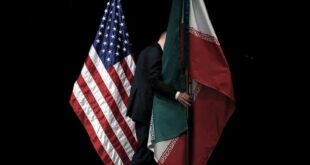 TEHRAN (FNA)- Former speaker of the Iranian parliament Gholam Ali Haddad Adel said here Thursday that Iran is now in zenith of grandeur and is a country with an influential and decisive role in the regional and global equations.
TEHRAN (FNA)- Former speaker of the Iranian parliament Gholam Ali Haddad Adel said here Thursday that Iran is now in zenith of grandeur and is a country with an influential and decisive role in the regional and global equations.
Haddad Adel made the remark in a ceremony held in Tehran on Thursday to commemorate former Iranian President Mohammad Ali Rajayee and former Prime Minister Mohammad Javad Bahonar, who were martyred in a terrorist bombing, orchestrated by the terrorist Mojahedin-e Khalq Organization (MKO) in Tehran in 1981.
Haddad Adel said that contrary to Iran which has become stronger worldwide, the “blind heart” MKO have now become the bete noire of people in Iran and other countries of the world.
He said that despite 30 years passing from the Islamic Revolution, people are still in the scene and back the system, IRNA reported.
The MKO, whose main stronghold is in Iraq, is blacklisted by much of the international community, including the United States.
The MKO is on the European Union’s list of terrorist organizations subject to an EU-wide assets freeze, and has been designated by the US government as a foreign terrorist organization.
The MKO is behind a slew of assassinations and bombings inside Iran, a number of EU parliamentarians said in a recent letter in which they slammed a British court decision to remove the MKO from the British terror list. The EU officials also added that the group has no public support within Iran because of their role in helping Saddam Hussein in the Iran-Iraq war.
A May 2005 Human Rights Watch report accused the MKO of running prison camps in Iraq and committing human rights violations.
According to Human Rights Watch report, the outlawed group puts defectors under torture and jail terms.
The group, founded in the 1960s, blended elements of Islamism and Stalinism and participated in the overthrow of the US-backed Shah of Iran in 1979. Ahead of the revolution, the MKO conducted attacks and assassinations against both Iranian and Western targets.
Leaders of the group have been fighting to shed its terrorist tag after a series of bloody anti-Western attacks in the 1970s, and nearly 30 years of violent struggle against the Islamic Republic of Iran.
Yet, the group started assassination of the citizens and officials after the revolution in a bid to take control of the newly established Islamic Republic. It killed several of Iran’s new leaders in the early years after the revolution, including the then President, Mohammad Ali Rajayee, Prime Minister, Mohammad Javad Bahonar and the Judiciary Chief, Mohammad Hossein Beheshti who were killed in bomb attacks by MKO members in 1981.
The group fled to Iraq in 1986, where it was protected by Saddam Hussein and where it helped the Iraqi dictator suppress Shiite and Kurd uprisings in the country.
The terrorist group joined Saddam’s army during the Iraqi imposed war on Iran (1980-1988) and helped Saddam and killed thousands of Iranian civilians and soldiers during the US-backed Iraqi imposed war on Iran.
Since the 2003 US invasion of Iraq, the group, which now adheres to a pro-free-market philosophy, has been strongly backed by neo-conservatives in the United States, who also argue for the MKO to be taken off the US terror list.
The MKO has been in Iraq’s Diyala province since the 1980s.
 Eurasia Press & News
Eurasia Press & News


